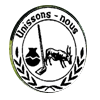COPORWA (Communauté des Potiers du Rwanda = Rwandese Community of Potters) is a non-profit-making and non-political organization that works for the promotion and defence of the potters’ rights in Rwanda. COPORWA carries out its activities all over Rwanda, which is a country of East Africa. Its total area is 26.388 km2 and it is inhabited by about 11.000.000 people. The demographic growth of the country is approximately 2,8% every year. The potters make, with roughly 25.000-30.000 habitants, less than 1% of the whole population.
Rwanda’s population lives mainly on the basis of agriculture and traditional livestock. Life conditions are not easy for the Rwandan people: Around 60% of the population lives in poverty, which means that they have less than 1,25$ per person and day.
For the potters, poverty has especially arised in all fields of their socio-economic, political and cultural life. The Rwandese Community of Potters, a minority in the country, represents the most vulnerable and poorest group in Rwanda. This community is known under the different designations like “autochthon population”, “Batwa”, “Potters”, “Pygmies”, “former hunters and gatherers” and “historically marginalised population”.
The potters have been stigmatized for a long time by the rest of the Rwandan society due to their way of life and have been subject and are subject to social, economic and cultural discrimination and marginalization. The majority of the potters’ community lives isolated from the rest of the population because of their extreme and chronic poverty and discrimination. Their level of income, their standards of housing, health and live are all very low.
For this reasons COPORWA becomes commited to this minority. COPORWA’s vision is a country with neither discrimination nor marginalization where the socio-economic, political, civic and cultural rights of all citizens are equal. In short, a constitutional state.
To reach these objectives, COPORWA’s mission is to promote the respect of rights, the social and economic integration of the potter s’ community within the Rwandan society through education, culture, improvement in income, and the defence of human rights.

